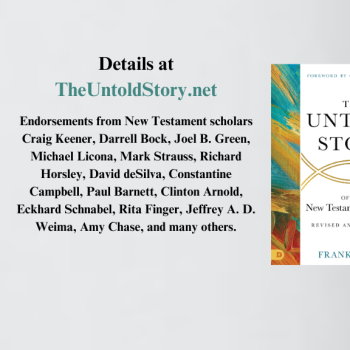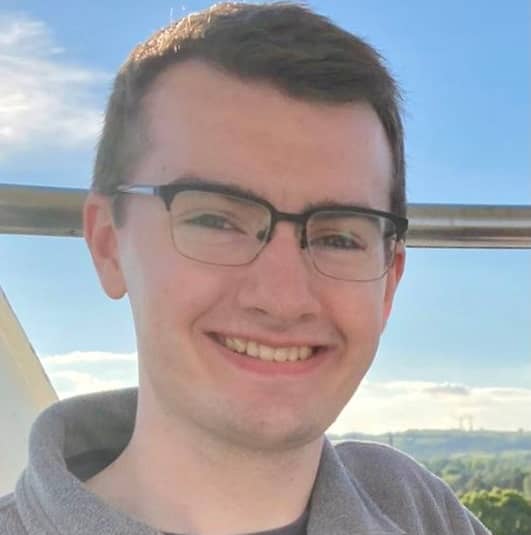
August is the month when students in the UK learn their high school exam grades and, off the back of this, whether they got accepted into their degree course or not. As I waited, earlier last month, to hear what was in those dreaded envelopes for my students, I couldn’t help reflecting on the time I spent at university myself. I studied theology from 2020 to 2022, with mostly positive memories. You wouldn’t want me, though, to gloss over the negatives – which are, inevitably, juicier to read about! – so there will hopefully be some balance to this article.
Undoubtedly, the biggest upside was the friends that I made – like my best mate, the fabulous author Erin Burnett. Just because you’re on the same course doesn’t mean that everyone you meet will be like-minded; but you’re likely to meet at least one person who chose to study theology for the same reasons you did – and when you meet said person, let friendship ensue!
But what’s it actually like to study the subject? One of our lecturers claimed in a seminar that it’s ‘dangerous’ to study theology. He meant, I suppose, that some people who go to college, if they pose too many questions, lose their faith. In the mind of an evangelical Christian, this is no trivial matter because, in the words of St. Athanasius, ‘Whosoever will be saved: before all things it is necessary that he hold the Catholick Faith.’ All the same, it’s a funny thing to tell young adults: if you come up with ‘wrong’ answers, you’ll end up in hell. It wouldn’t happen in other subjects; “okay physicists, on pain of eternal death, solve this differential equation!”
As you can imagine, we seldom gainsaid our academic overlords. Instead, you would sus out other ‘dissenters’ from their body language (a grim silence during seminars was always telling). It was, if you will, Among Us: Presbyterian Edition! You would ask other ‘Imposters’ privately to go for coffee (somewhere clandestine). There, you could speak freely. No-go topics, from biblical inerrancy to sexual ethics, were suddenly permissible in the coffee shop.
Too many people, stifled by fear, graduate in theology the same person they were when they began their degree. They don’t, in all their time as undergrads, change their minds about a single thing. All they want from their studies, it seems, are justifications to back up already-formed opinions; they believe the same things, just with a better case now to back them up.
Don’t get me wrong; I don’t believe that you have to graduate with a trail of abandoned principles in your wake, but I can think of individuals I crossed paths with who were totally deaf to new perspectives. You can choose a happy medium: hold faith in one hand, and reason in the other. It’s ok to revise your beliefs in light of evidence you hadn’t previously considered.
What did I change my mind about at university, then? Well, I no longer believe the homophobic things I once did – that gay people go to hell and thoroughly deserve it, for example. It was neither loving towards myself nor other LGBT people to think this way. Thus, I no longer do. There wasn’t much of an intellectual struggle; I simply learned that ‘he who loves his neighbor has fulfilled the law’ (Romans 13.8, RSV). Therefore, every relationship of love – whether between a man and a woman, two men, or two women – is to be celebrated.
With regards to specific modules, I found ‘systematic theology’ torturous. I did one module on it and swore ‘never again’. There’s a likeness, I found, between the systematics class — abstract, on an almost self-indulgent scale — and a bust-up over sci-fi between Leonard and Sheldon from The Big Bang Theory: the finest hairs are split, with no practical outcome. It’s incredible that, “How many angels can dance on the head of a pin?” wasn’t our exam question.
I’ve been fairly negative so far, so let me turn back to the positive side. You have time and space, when you study theology, to work out your value system. Approached in the right spirit, a theology degree will also teach you to think for yourself: “am I just a robot, who believes whatever my priest or minister says on a Sunday morning; or might I dare to think differently?”
This journey might involve, as it did for me, the realisation that you no longer feel you belong in a given congregation. While painful in the short run to leave behind your spiritual home – for me, the Presbyterian Church, in which I was Christened – it’s worth it when you find a community that’s more in tune with your beliefs. Is ‘going over to Canterbury’ the Anglican version of ‘going over to Rome’? If so, then that’s what I did! I have a new spiritual home now.
There you have it: an honest reflection about what it’s like to study theology (from one person’s perspective, of course). Don’t be cowed by those who seem to think you book your taxi to hell when you so much as pose a difficult question. Don’t see college as a charity shop of second-hand arguments you can pick off a dusty shelf to bolster your pre-determined views.
Do read widely – seek out writings from faiths other than your own; one thing I’m glad I did was to read the Qur’an in translation. Don’t see these other faiths as a threat. Above all else: CHOOSE YOUR COLLEGE WISELY! Many colleges are ‘confessional’, as in they have a denominational ethos they follow. Take your business elsewhere if you’re more of a free spirit.
Regardless of where you choose to study, have the reasons behind your decision to pursue theology straight in your head. Everything comes back to the two great commandments: (1) ‘You shall love the Lord your God with all your heart, and with all your soul, and with all your mind’ (Matthew 22.37); and (2) ‘You shall love your neighbor as yourself’ (Matthew 22.39). Theology, done well, asks how believers can apply these principles to the situations we find ourselves in. It ignites in us a passion for justice. It sends us into the world as agents of love.
9/17/2024 2:31:24 AM





